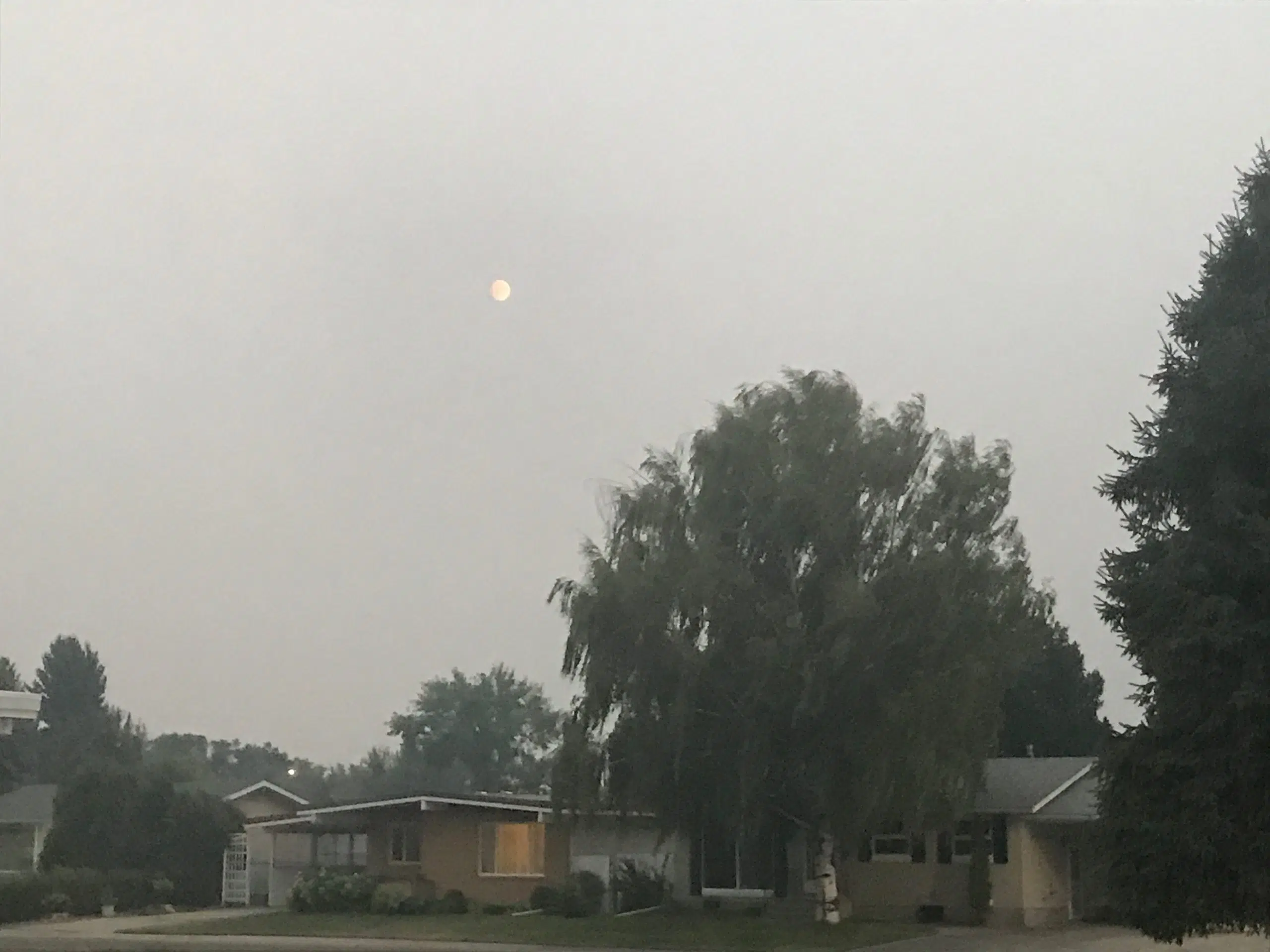
Environment Canada issues special air quality statement for Lethbridge and surrounding areas
LETHBRIDGE – Air quality in Lethbridge and surrounding areas declined significantly Saturday evening, as smoke from B.C. forest fires began affecting the region around 7 p.m. according to Environment Canada. According to the Canadian Air Quality Health Index, the rating for the Lethbridge area was 10+ as of 9:45 p.m., meaning everyone should reduce or reschedule strenuous activities outdoors, especially if they experience symptoms such as coughing and throat irritation. Conditions are expected to improve sometime on Sunday.
- City of Lethbridge
- Co. of Forty Mile near Skiff
- Co. of Lethbridge near Coaldale
- Co. of Lethbridge near Coalhurst Nobleford and Barons
- Co. of Lethbridge near Picture Butte and Turin
- Co. of Warner near Milk River and Coutts
- Co. of Warner near Raymond Stirling and New Dayton
- Co. of Warner near Warner
- Co. of Warner near Wrentham
- Co. of Warner near Writing-On-Stone Prov. Park
- M.D. of Taber near Grassy Lake and Hwys 877 and 513
- M.D. of Taber near Taber and Barnwell
- M.D. of Taber near Vauxhall and Hays
Elevated pollution levels are expected or occurring.
Smoke from forest fires in British Columbia have drifted over the mountains and into southern Alberta this evening creating elevated smoke levels near the ground. Poor air quality will exist overnight and improve when a cold front moves through the region Sunday morning.


